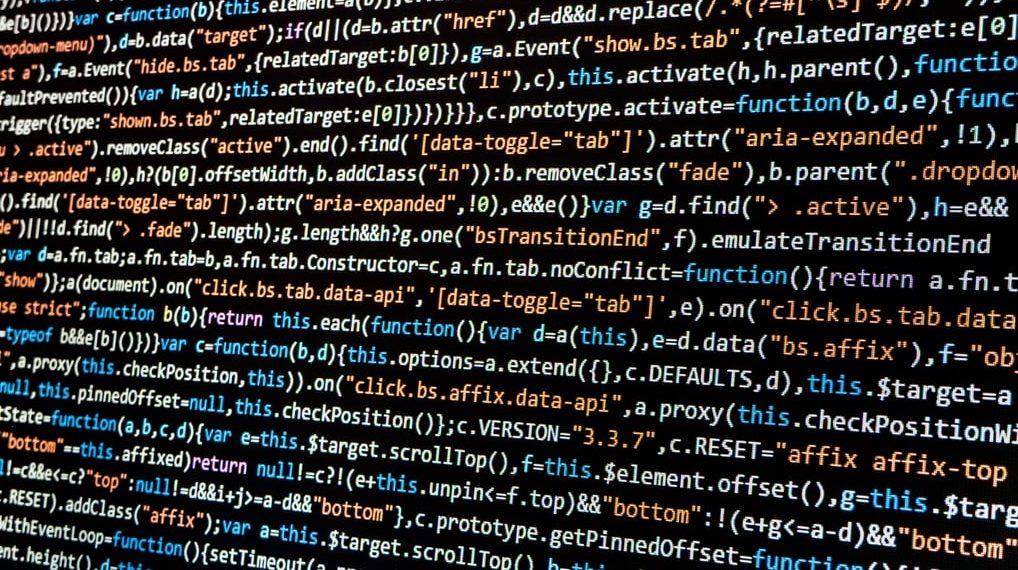While any crisis may be a possibility to sway public opinion, it can also cause you to quickly fall out of favor. The pandemic poses numerous threats to the tech industry but it is not without silver linings. Companies may use their ad hoc responses to greatly enhance their image. How exactly can the recent events affect the perception of the tech sector? And is it a black swan or rather a gray rhino?
The industry’s social responsibility
Startups and global companies alike have gotten involved in helping individuals as well as public institutions, mainly hospitals. A range of software products and applications designed to process Covid-19 data from various sources have been made available to scientific institutes free of charge. Hospitals have been offered free multiple-month subscriptions to access AI-enabled software that is helping them diagnose and register patients. Amazon, Microsoft and Google have been offering extended free trials to the users of cloud devices. Many companies have launched projects to help people who have lost their livelihoods. An example is a continuously updated map of food pantry and soup kitchen locations across the United States. Countless financial aid initiatives have been launched to deliver relief, at least temporarily, to the shortage-crippled health care system. Hosts of other technology-centered community outreach programs are being rolled out.
Such initiatives have been well summed up by Bill Gates, who said: “During World War II, an amazing amount of innovation, including radar, reliable torpedoes, and code-breaking, helped end the war faster. This will be the same with the pandemic. I break the innovation into five categories: treatments, vaccines, testing, contact tracing, and policies for opening up. Without some advances in each of these areas, we cannot return to the business as usual or stop the virus.”
More respected communities
Three years ago, Facebook suffered an image problem associated with the Cambridge Analityca scandal brought about by a data breach. In a separate development, the company faced accusations of failing to respond to an onslaught of fake accounts being set up and used to spread misinformation. There appear to be parallels between the current situation and these events that unfolded four years ago. Once again, the platform faces a spate of fake accounts and fake news, this time concerning the coronavirus. It seems that having been accused of inaction, FB tried to learn from its mistakes. Users reporting a suspicious account on its platform, and any user is free to do so, are assured that their report will not go unnoticed. Facebook tells such users to be patient as, according to its management, the pandemic has provoked an explosion of fake news and fictitious accounts. Facebook has also abandoned its strategy of neutrality towards published content that triggered a firestorm of criticism during the US presidential elections. It now simply takes down accounts, including those that advocate protests of stay-at-home orders. Such a response is likely to earn FB praise from all those users who had previously condemned its inaction. Facebook’s other efforts to generate goodwill include support for relief campaigns, live streaming of cultural events, and aggregation of valuable coronavirus-related content.
Shopping from A to Z
Amazon is experiencing rapid growth, which is easily explained by the restrictions imposed on traditional trade. The company, which is mainly associated with the sale of books and CDs, is struggling to fill all orders on time during the pandemic. A huge spike in demand has overwhelmed its capacities upsetting delivery schedules, which are currently focused on the most essential items. The website of this world’s largest online store is flooded by wholesale orders of food and hygiene products. Amazon’s extension of its product range is helping the company to further strengthen its position and role as a global marketplace platform. This gives rise to the question of whether, as a result of its efforts, Amazon is in for another wave of criticism regarding its creeping monopolization of trade. In fact, this criticism has accompanied the company for years. Numerous consumers make a choice by buying from Amazon. And yet, the public cannot simply shrug off reports of deficient security in its warehouses. In the near future, Amazon is likely to try to take advantage of customer interest in the new product categories. It may attempt to portray itself as a company that satisfies all needs, even in the most trying times.
Building secure relationships
The tech is proving useful in estimating and monitoring the spread of the pandemic. This is an opportune moment for the software developers who have set out to combat the virus. A plethora of projects are under way to develop applications intended to help observe outbreaks and keep track of symptoms and body reactions. A case in point is the joint Apple and Google contact-tracing app project designed to track transmission routes. It envisions having data transferred between smartphones by Bluetooth, with users remaining anonymous thanks to the use of a special key, and being given control over whether to turn on the application. Another Bluetooth-based system, called PACT, is being developed by MIT researchers. It is intended to assist public health officials in tracing Covid-19 while protecting people’s privacy.
Privacy protection
So much for the theory. It is still too early to tell whether user data will be adequately protected in both systems. The problem of privacy violations has come to the fore in connection with Zoom, an application that has recently seen a record rise in popularity. One question that we will likely be asking ourselves well into the future concerns our ability to make rational choices at this emotional time and be prudent about launching apps on our smartphones. Will we heed recommendations and warnings and resist the temptation to believe institutions and companies promising to successfully fight the coronavirus but failing to respect our right to privacy.
Determined to value trust
The pandemic has shown just how reliant we have become on technology, both as individual consumers and as employees of companies and public institutions. Technology has become indispensable in our day-to-day lives during normal times – it is simply a part of life. Within weeks, we have learned that we can’t do without it, especially when crises strike. Apple, Amazon, Google, Microsoft, Facebook, and Netflix are helping us maintain elementary order when our lives go haywire. The contribution of these companies to readjusting the world is enormous. Naturally, the question that remains is what lessons these companies will learn from the overall situation and specifically from the fact that millions of people around the world had no other choice but to resort to extensive use of digital tools. People’s trust should not be underestimated or allowed to go to waste – it deserves due appreciation. It will surely take months to find whether the corporations that are thriving during the pandemic have indeed managed to forge better relations with users. Those months is precisely how long it is going to take for us to regain our composure and begin to perceive reality more dispassionately and objectively.
. . .
Related articles:
– Algorithms born of our prejudices
– How to regulate artificial intelligence?
– Will AI save the labor market?
– Artificial Intelligence is an efficient banker










CaffD
and what? still not gained
Simon GEE
I vote for rhino 🙂
Andrzej44
nice read
Aaron Maklowsky
Did anyone here about the AI that some programmers made and started writing its own language unknown to the programmers so they had to unplug it and turn it off, this was like about a month ago I heard about it , if this is true it’s pretty scary
Marc Stoltic
I think it’s likely that AI, if it even presents some military edge, will take a similar course as nuclear tech. Since every country is researching it, and the knowledge is pretty open source, every country will have AI and there wont be any “competitive edge.” (I guess not every country has nuclear capability, but it’s a similar international-super-power sort of situation).
Mac McFisher
Don’t worry friends, the AI singularity is coming soon. VR utopia or complete extinction of the human race will follow soon after, so make sure your last years in this life are not gruelling work
Zeta Tajemnica
It is incorrect to focus on Russia. We know that cyber warfare is a thing and have known since news of the west damaging Iran’s nuclear program centrifuges.
AI is a natural fit for cyber warfare so it is a safe bet that everyone that has intelligence services is engaged in applying it for both defensive and offensive purposes.
Tom Aray
I’ve seriously been reading essays about AI all day and then this just pops up on the front page.
Grzegorz Wiatr
I vote for grey rhino